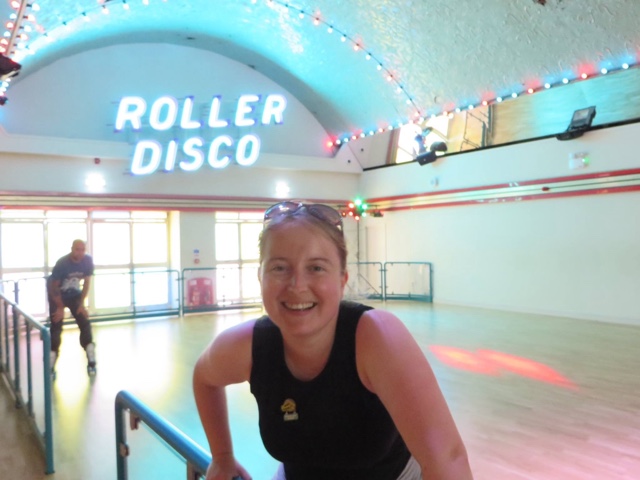One of my favourite films growing up was Parenthood, a Ron Howard comedy which follows a few months in the lives of the Buckman family. Steve Martin is Gil Buckman, a stressed father who is trying to hold it all together. Towards the end of the film he is having an argument with his wife about yet another crisis: she's pregnant, he's just quit his job, and they're both scared about the future. At this point Grandma wanders in and tells an apparently unconnected story about going to a theme park as a young woman, while the Buckmans smile with polite exasperation. She describes the experience of going on the roller coaster, which was unpredictable, unnerving, terrifying, thrilling and exciting all at once. Some people preferred the merry-go-round, she explains, but that just goes up and down. She preferred the roller coaster - you get more out of it. As she wanders off, Karen Buckman exclaims that she's a smart lady. Gil is less impressed: "I was all confused about life, but then Grandma comes in with her wonderful and affecting roller coaster story and now everything's great again!"
I went to a theme park at the weekend with some close friends, and I was surprised at how scared I was. I used to be able to go on roller coasters - I remember going on Nemesis at Thorpe Park about ten years ago - but I don't think I could do it now. The fear seems to have increased as I've got older. Maybe it's because I have more to lose now than I did at 25; maybe I'm more aware of danger and therefore less reckless; maybe I'm just a wuss. Even the Ferris wheel freaked me out, which was a surprise, because I'm usually OK with heights. I wasn't over-keen on the maze, either, which was created out of carefully angled mirrors in a dark room. The pirate ship ride seemed like a safe bet - it just went up and down and round and round, albeit quite quickly. Unfortunately for the friend sitting next to me, I screamed the whole way round, partly in exhilaration, partly in order to counteract the unpleasant swooping sensation you get in your stomach when your body drops in that unnatural way. One pleasant surprise was the roller disco, however - it turns out that I love roller skating!
I'm not sure there would be any excitement at a theme park without the fear. If you felt totally safe it wouldn't be fun. A little bit of fear adds spice to the experience, perhaps in the same way that our lives are more fun to live when there's some uncertainty, risk and unpredictability. As with the fairground, I guess we all have different levels of tolerance for uncertainty and risk. I'm the kind of person that gets bored easily and craves excitement and variety. For me, the years I spent as an intern and a theological college student, relying on God and on the generosity of friends, were less frightening than they might have been for someone else. Strange, then, that while I like excitement and risk, I get scared at the fairground. And perhaps it's strange that stress comes out in me as anxiety - in other words, as fear. I don't get scared by some of the things that scare other people, but I do get scared by things that are totally harmless. Like travelling, which has become much harder for me since my anxiety has flared up. I can go five years without a salary, but don't make me go over the Dartford crossing.
Where is God in all this? Of course, I cry out to God when I'm scared, but he hasn't yet responded by taking away the things that scare me. Instead he seems to be saying these days (quietly and patiently) that it's OK to ask for help when I need it. Rather than grit my teeth and get on with it, because really, a grown woman should be able to cope with the Dartford crossing, I tell people that I suffer from anxiety when travelling. I have started to tell people at church that I get nervous before public speaking (something that, like roller coasters, never used to scare me).
I've started reading a brilliant book by shame researcher Brene Brown, Daring Greatly, which was recommended at a retreat day I attended recently. Brown writes extensively about shame, this fear of being seen that we all suffer from, and which can prevent us from being vulnerable and 'daring greatly' because we're so afraid of people seeing us for who we really are. That's a very quick summary - I highly recommend Brene Brown's TED talks if you want to know more. The opening of chapter three really spoke to me:
Shame derives its power from being unspeakable. That's why it loves perfectionists - it's so easy to keep us quiet. If we cultivate enough awareness about shame to name it and speak to it, we've basically cut it off at the knees.
There are many kinds of fear, and some kinds are not easy to confront. I have found that some of my fears have less power when they are brought into the light.

Comments
Post a Comment